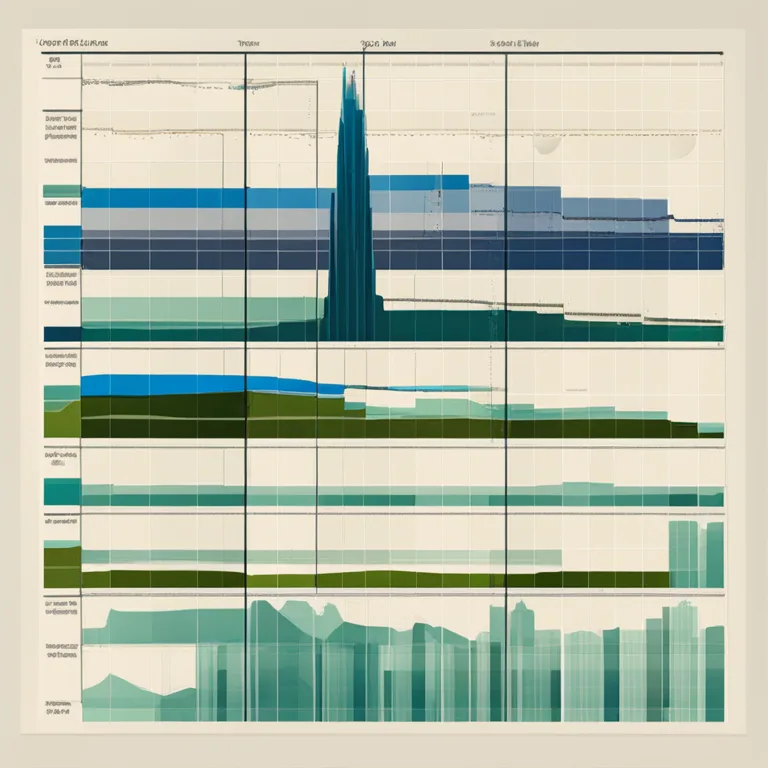
Biorhythms in Action: Everyday Examples
Discover how biorhythms influence daily life with practical examples, enhancing personal awareness and well-being.
article by Adrian Wallace
Introduction to Daily Biorhythms
Biorhythms are thought to be biological cycles affecting physical, emotional, and intellectual faculties. Enthusiasts believe that understanding these patterns can offer insights into one's optimal performance times and potential down periods. Initially popularized in the early 20th century, biorhythms have since woven themselves into various wellness philosophies. As we edge further into 2024, interest in holistic health has spurred a renewed focus on how these cycles purportedly influence our lives.

Physical Biorhythm Cycles
The physical biorhythm, operating on a 23-day cycle, reportedly influences our strength, coordination, and wellbeing. An example might be a runner who tracks their physical cycle to plan for a race. During a high phase, they may feel energetic and robust, potentially improving performance. Conversely, during a low phase, increased rest and recovery could be necessary to avoid injury. While not scientifically proven, such considerations could impact how individuals approach fitness regimes in the new era of personalized health insights.

Emotional Biorhythm Swings
The emotional biorhythm, cycling every 28 days, is believed to sway our mood and creativity. For example, individuals might notice a correlation between their cycle's high phase and periods of optimism or an outpouring of creative work. Conversely, a low phase may coincide with feelings of emotional sensitivity or a lack of inspiration. Recognizing these patterns could aid in personal relationship management or in selecting the best moments for artistic expression or important life conversations.

Intellectual Biorhythm and Decision Making
Operating on a 33-day cycle, the intellectual biorhythm is said to bear on logical thinking and analytical capabilities. One might use this knowledge to schedule intellectually demanding tasks, like strategic planning or learning new skills, during a high phase. During a low intellectual biorhythm phase, tasks requiring less cognitive effort might be more appropriate. This understanding could be particularly useful for students or professionals aiming to maximize their cognitive output.

Biorhythms and Compatibility
Some people believe that comparing biorhythms can provide insights into personal and professional compatibility. For instance, a team might choose to embark on a project when members are simultaneously in their intellectual or physical high cycles, with the aim of harnessing collective peak performance. Though the scientific community remains skeptical, biorhythm compatibility continues to intrigue those looking for deeper connections and improved team dynamics.
Calculating Your Biorhythms
In 2024 and beyond, technology continues to play a pivotal role in the accessibility of biorhythm calculations. With advancements in health-monitoring apps and wearable devices, individuals can easily track their personal cycles and receive predictions about their daily biorhythmic state. This user-friendly access encourages proactive lifestyle adjustments and supports the ongoing interest in self-optimization practices.
Reflection and Consideration
Critics challenge the scientific validity of biorhythms, citing a lack of empirical evidence. Nevertheless, for many, it remains a source of fascination and personal exploration. Whether one views biorhythms as a science or a spiritual guide, considering one's natural rhythms could foster a deeper connection with the self and a mindful approach to daily life—a trend that only seems to grow in popularity.
Published: 12/28/2023
Modified: 12/28/2023
More predictions
Come back here soon to learn more about yourself and your future


Navigating Biorhythm Cycles
Explore the concept of biorhythms, their cycles, and examples of how they influence our daily lives.


Unlocking Your Body's Natural Clock
Explore the intriguing world of biorhythms and discover how they influence your physical, emotional, and intellectual states.


Biorhythm Wheel: Unlocking The Secrets
Explore the intriguing world of the biorhythm wheel to understand your physical, emotional, and intellectual cycles for enhanced well-being.